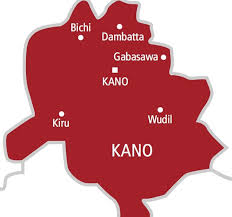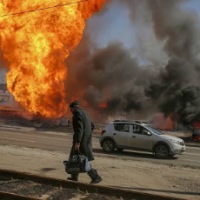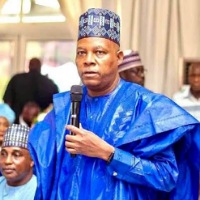NEWS
Understanding African Rebellion: Fani Kayode Explores Root Causes

In a compelling post, Fani Kayode, a renowned Nigerian political commentator and writer, delved into the concerning surge of military coups unfolding across the African continent.
He disclosed this in a series of tweet titled “WHEN REBELLION IS A VIRTUE (PART 1)” via his X account on Sunday morning.
Fani Kayode expressed deep concern over the alarming trend of seven successful military coups in as many African nations within the past three years.
He highlighted the critical questions surrounding the legitimacy of these coups and the mandates of the leaders they unseated.
The post reads in part “Unfolding events in Africa continue to intrigue the world & the fact that no less than seven military coups have been successfully effected in no less than seven African countries in the last 3 years gives cause for concern.
“What is the cause of these violent acts of mutiny & rebellion and can there be any justification for such behaviour?
“How legitimate were the mandates of those that have been toppled & are the soldiers that have carried out these ostensibly illegal acts of insurrection, revolution & treason & taken power by the barrel of a gun criminals & rebels that should be shot at the stake or God-sent & divinely-inspired heroes, liberators & deliverers of their respective countries & people?
“Can their actions be justified in some cases or are they appropriate for all & can such a course of action ever be deemed appropriate for our country Nigeria? When is rebellion a virtue & when is it a curse? When is mutiny, revolution & a call to arms appropriate & when is it not?
“What does one do with civilian dictators & sit-tight Presidents who have sold and mortgaged the future & destiny of their nation to the Western imperialists & neo-colonial powers & who torment their people & refuse to leave office.
“These are just some of the questions that yours truly seeks to answer in this contribution. Enjoy the ride! On the 13th March 1962, in his address on the first anniversary of the Alliance For Progress, President John F. Kennedy of the United States of America, said the following:
“Those who make peaceful revolution impossible will make violent revolution inevitable”.
“In the history of humanity few have enunciated such a profound yet obvious home truth as President Kennedy has done with these famous words.
“Sadly even fewer have learnt anything from them. Those that doubt this have much to learn. Consider the following.
“Pres. Paul Kagame of Rwanda & Pres. Paul Biya of Cameroon have ruled their African countries for 23 & 42 years respectively.
“Approximately 1 week ago they were both constrained to sack, retire, redeploy & replace much of their Military High Command, senior Army commanders & thousands of commissioned & non-commissioned officers in the light of the wave of military coups that have swept West & Central Africa & just one day after the one that took place in Gabon.
“This was clearly a panic measure on both their parts. They did it out of rabid fear & in a desperate attempt to thwart, pre-empt & prevent a military coup & stave off an anticipated mutiny in their respective Armed Forces.
“Unfortunately for them such peripheral & ineffectual remedies & desperate attempts to ward off all opposition & dissent in an attempt to hold on to power forever will not work because their so-called “mandates” lack legitimacy & they do not have the backing of the people.
“Worse still they are both oblivious of & totally blind to the rationale & ethos of mutiny & armed rebellion & are clearly ignorant of the essence & motivation for military coups.
“Simply put, no matter who your senior military commanders are, whether the old or the new & no matter how many times you sack, retire, redeploy or change them, when you are an illegitimate, depraved & evil leader who crushes, murders, persecutes & incarcerates members of the opposition & who rigs elections, refuses to leave power, torments the people & imposes a corrupt, bloodthirsty & blood-lusting dictatorship & dynasty of barbarism & tyranny on his nation, coups, mutiny, rebellion, revolution & insurrection become inevitable: it is only a question of time.”
“Is it any wonder that sit tight rulers and life-long dictators like Kagame, Biya and others are scared of their own shadow, are shivering under their beds and enjoy no peace?
“If you do not stand up, resist, fight back and “breed unnatural troubles” when confronted with wickedness, injustice and tyranny, you cannot expect to ever enjoy your God-given right of freedom and neither will you ever witness emancipation from subjugation and oppression.
How else would you remove and replace power-obsessed dictators like Ali ‘Make Some Noise’ Bongo of Gabon, Field Marshall Idi Amin Dada of Uganda, Papa Doc and his son Baby Doc Duvalier of Haiti and the mentally-ill Jean Bedie Bokassa of the Central African Republic (who declared himself the Black Napoleon and Emperor for life and who kept the freshly decapitated heads of his enemies in his fridge)?
“To move against such monsters and topple them by ANY means possible is surely a divine duty and obligation and one which every single one of the Holy Books not only encourages but also insists on. Can we be expected to do anything less?
“Is it not the injustice and tyranny that the French, the Russian, the American, the English, the Chinese and many others were subjected to hundreds of years ago that pushed them to the wall and inspired and provoked them to take up arms and unleash some of the most violent and bloodthirsty rebellions and revolutions in the history of humanity?
“Was this not the right and proper thing for them to do and had it not been for their resistance to such barbarous oppression and subjugation from their erstwhile oppressors and slave masters would they be the free, civilised, great and powerful nations that they are today?
“Had it not been for Flt. Lieutenant Jerry Rawlings’ revolution and coup d’etat in 1979 and 1983 respectively would Ghana be the great and stable nation and flourishing democracy that she is today?
NEWS
Kano Police Warn Residents Of Imminent Terror Attack Threats

The Kano State Police Command has warned residents of a potential terror attack, targeting public gatherings in strategic locations across the state.
In a statement issued on Friday, the command’s Public Relations Officer, SP Abdullahi Haruna, disclosed that intelligence reports indicated suspected terrorists were planning to carry out attacks.
“The Kano State Police Command, in liaison with other security agencies, has received intelligence reports of suspected terrorists planning to launch attacks on public gatherings in strategic locations within Kano State.
READ MORE: Savannah Energy Provides Unaudited FY 2024 Trading Updates
“In response, we hereby urge residents to exercise caution and avoid crowded places and environments until further notice as a preventive measure to enable security operatives to identify and dislodge possible attackers,” the statement read.
To address the threat, the police command has enhanced security arrangements across the state. SP Haruna revealed that specialized units, including the Explosive Ordinance Disposal (EOD) and the Chemical, Biological, Radiological, and Nuclear (CBRN) teams, have been deployed to strategic locations and are on high alert.
“A team of experts from the command’s Explosive Ordinance Disposal, Chemical, Biological, Radiological, and Nuclear units have been deployed to strategic locations and are on high alert.
“The unit can be contacted through: 08169884988 or 07067157218 for report of suspicious persons or item(s),” Haruna stated.
Residents have been urged to remain vigilant and report any suspicious activities to the nearest police station or contact the command through the designated hotlines.
“The command remains committed to protecting lives and properties as well as maintaining law and order in Kano State.
“We appreciate the support and cooperation of the good people of Kano State and urge everyone to remain vigilant. Your vigilance and cooperation are crucial in ensuring public safety,” the statement concluded.
NEWS
Ifon-Ilobu-Erin Osun Land Disputes: Osun Constitutes A 100-Member Boundary Resolution Committee

In the bid to resolve the incessant land disputes between the communities of Ifon, Ilobu and Erin Osun, the Governor of Osun State, Senator Ademola Adeleke has constituted an enlarged 100-member high powered land crisis resolution committee in which each of the affected communities has 25 representatives, and the state government represented by 25 members.
The Osun State Commissioner for Information and Public Enlightenment, Oluomo Kolapo Alimi made the disclosure in a statement in Osogbo, on Friday.
He revealed that the Ataoja of Osogbo land, Oba Jimoh Adetunji Olanipekun Larooye is the Chairman of the Committee, while a retired judge of Osun State Judiciary and Chairman, Osun State Boundary Commission, Justice Moshood Adekunle Adeigbe, would serve as the Co-Chairman.
According to Alimi, Gov Adeleke put in place the Committee with a view to bringing a lasting end to the incessant land disputes among the three affected communities.
ALSO READ: Leadership Newspaper Backs Adeleke For Second Tenure, Names Him ‘Gov Of The Year’
It was gleaned from the statement that there were four other traditional rulers on the panel, including His Royal Majesty; Oba Abioye Oyebode, the Olokuku of Okuku, His Royal Majesty; Oba Adams Iyiola Bamidele Yusuf, the Oloba of Oba Oke, His Royal Majesty; Oba Adekeye Oyedare, the Oloyan of Oyan and His Royal Majesty, Oba Akeem Ogungbamgbe,The Owaloko of Iloko-Ijesha.
Other members are Umar Abba Mohammed, Osun State Commissioner of Police, Ayoola Kehinde, Osun State Director, Department of State Services( DSS) Brigadier General, Aliu Mohammed, Commander E.C.C, Ede, Sotiyobo Igbalawola, Osun State Commander, Nigeria Security and Civil Defence Corps( NSCDC), Anthony Chikezie, Commander, Immigration Service, Osun State, Adekunle Omoyele, Osun State Commander, Amotekun Corps, and Special Adviser to Osun State Governor on Security, Barrister Dare Ojo.
Also on the enlarged Committee, where members are enjoined by Gov Adeleke to bring in their wealth of experience to bear on the highly critical assignment, are the Chairman, NBA Osogbo branch, Yemi Abiona, Esq; the Chairman, NBA, Ikirun, Niyi Akinsola, Esq; the Chairman, NBA, Ile Ife, Tope Olajoko, Esq; the Chairman, NBA, Ilesha, Raymond Oki, Esq; Others appointed to serve on the Ifon- Ilobu- Erin Osun Peace Resolution Committee are; Soladoye Abioye, the Surveyor General of Osun State – Dr Sodiq Olohunde, Office of Chief of Staff to the Governor, Marufat Adekemi Bello, Permanent Secretary , Ministry of Justice – Femi Ogundun,- Permanent Secretary, Ministry of Local Govt and Chiertincy Affairs, Dr Fritz Mobolaji Olaoye, Permanent Secretary, Ministry of Lands and Physical Planning.
Completing the list of the Committee members are Comrade Wasiu Ajadosu, Osun NUJ Council Chairman, Comrade Waheed Lawal, Osun Civil Society Coalition and Comrade Saka Mao, a Public Affairs Analyst
The statement has it that Gov Adeleke, will on Tuesday, the 28th of January, 2025 perform the swearing in ceremony of the 100-member enlarged Ifon, Ilobu, Erin Osun Land Crisis Resolution Committee, at the Multi purpose hall of Local Government Service Commission, State Government Secretariat, Abere Osogbo by 11:00am.
NEWS
Okpebholo Moves To End Indiscriminate Parking, Gridlock In Edo State

Edo State Governor, Senator Monday Okpebholo, has charged the Managing Director of the Edo State Traffic Control Management Agency (EDSTMA), Engr. Stainless Ijeghede on indiscriminate parking and traffic gridlock, especially in market areas.
According to a statement in Benin City on Friday, by Chief Press Secretary to Edo State Governor, Fred Itua, his principal gave the charge while decorating Ijeghede with his new rank as the head of EDSTMA.
He noted that while addressing the new Managing Director and his personnel at the Exco Chambers in Government House, Gov Okpebholo pointed out that the agency should do its job well by ensuring free flow of traffic across the state.
He called on Ijeghede and men of the agency to ensure they checked indiscriminate parking of vehicles and buses, especially in market areas.
“Edo State belongs to all of us and whatever we are doing, we should do it with care not to harm anybody. I appeal to EDSTMA to ensure that the city is well kept because whenever I drive round town, I see vehicles everywhere as the city is not well kept.
“This is your primary assignment. You should ensure the city is well kept as vehicles park indiscriminately and they are causing obstruction. Traffic is not flowing as it should and it is causing serious gridlock. Is it that you are not doing your job well?
ALSO READ: Leadership Newspaper Backs Adeleke For Second Tenure, Names Him ‘Gov Of The Year’
“Is it that you are not doing your job well or because you have a new leader that is why traffic is not flowing, or because you don’t know your job?
“You people should wake up and keep the state clean. Make sure that vehicles are parked well especially in the market areas. Monitor markets very well as these areas are looking really unkempt with vehicles and buses parked indiscriminately, causing traffic gridlock. Edo people are worst hit. They suffer from this. Ensure free flow of traffic so that the people will be happy,” Governor Okpebholo emphasized.
The EDSTMA boss, thanked Gov Okpebholo for the opportunity to serve the people of Edo State and assured him of the loyalty of the agency.
He added that his men will do their job professionally and ensure that the is free flow of traffic across the state.

























